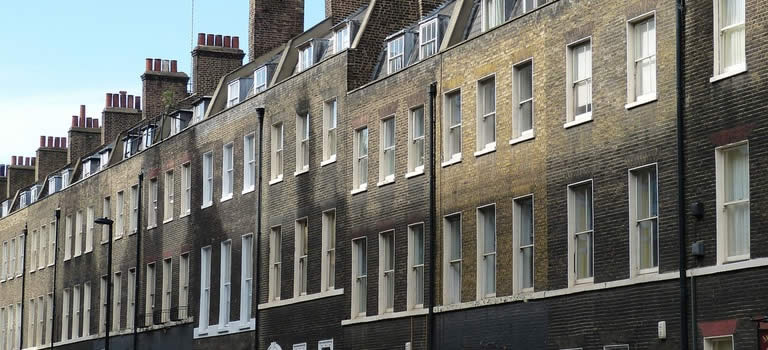
Buyers Information
Whether this is your first time buying a property or you may have bought 15 properties before, it’s worth having a read through the following information to familiarise yourself with the Property Buying process in the UK’s ever-changing property market.
Here is a useful guide to Property Buying (including a First Time Buyers Guide) from Rightmove.
Step-by-Step Property Buying Information & Advice... (this guide assumes we are acting as the Estate Agent throughout the whole sale).
To establish how much you can afford to pay for your property you will need to total up;
- The amount of cash deposit you have available
- Any assistance by a developer or government scheme (ie. Help To Buy)
- Stamp Duty Land Tax (see below)
UK Residential Property and Buy-To-Let Stamp Duty Tax Calculator (SDLT)
How much stamp duty will you have to pay when buying a residential property?
The following calculator and commentary is for general interest only and must not be relied on. It may not be up to date or complete, relates only to certain types of residential property in England or Wales and does not constitute advice. We can often help you to find suitable independent advisers, but you will always need to take specific advice advisers on tax issues in specific situations.
Stamp Duty Calculator
Enter a property value and press calculate to see how much Stamp Duty you'll have to pay.
Calculate Your Stamp Duty
Results
Stamp Duty To Pay:
Effective Rate:
| Tax Band | % | Taxable Sum | Tax |
|---|
When is Stamp Duty paid?
Stamp Duty Land Tax (SDLT) is a progressive tax paid when purchasing a freehold, leasehold or shared ownership residential property over £125,000 in England, Northern Ireland and Wales (separate Land and Buildings Transaction Tax in Scotland). New SDLT rates were introduced in 2014's Autumn Statement, introducing a sliding system based on thresholds and dependent on a property price.
Different SDLT rates and thresholds apply to non-residential property or mixed use land.
Before 2014 a 'slab structure' was in place with buyers paying a rate based on the ENTIRE property purchase price. The new rates are now payable only on the PORTION of a property price which falls within each band. As with every tax, there are those who will be better and worse off compared to the previous system.
Stamp Duty Tax Rates as of December 2014 for residential properties purchased by individuals
|
Brackets |
Rate |
|
£0-£125,000 |
0% |
|
£125,001-£250k |
2% |
|
£250,001-£925k |
5% |
|
£925,001-£1.5m |
10% |
|
£1.5m+ |
12% |
How to calculate the new Stamp Duty rate
So, if you bought a property for £850,000 you would you pay no stamp duty on the first £125,000, then 2% on £125,000 to £250,000 and 5% above £250,000. (eg: £800,000 - £250,000 = £600,000 x 0.05 = £30,000 + £2,500 = £32,500).
As the property price increases the rate of pay increases within a certain tax bracket with percentages rising when a higher price threshold is reached. Under the new SDLT property over £925,000 - £1.5m will be taxed at a rate of 10% compared with 5% in 2014.
Buy-to-let and second homes Stamp Duty 2018
From April 2016, property buyers in England and Wales will have to pay an additional 3% on each stamp duty band. To discuss which London or UK areas will provide the highest returns on investments in 2018, 2019 and beyond.
Buy-to-let and second home Stamp Duty tax bands
|
Brackets |
Standard rate |
Buy-to-let/second home rate (April 2016) |
|
Up to £125,000 |
0% |
3% |
|
£125,001 - £250,000 |
2% |
5% |
|
£250,001 - £925,000 |
5% |
8% |
|
£925,001 - £1.5m |
10% |
13% |
|
over £1.5m |
12% |
15% |
Can I reduce Stamp Duty?
As stamp duty is only payable on the land purchase, removable fixtures and fittings, or chattels, such as freestanding wardrobes, sofas, fridges, carpets and curtains, are not subject to SDLT and can, therefore, be subtracted from the total property price. Everything 'attached' to property such as light switches technically form part of the property and are subject to SDLT.
If a seller is willing to leave certain chattels, you should agree to pay a reasonable amount between yourself and the vendor and subtract it from the agreed purchase price. This can be executed by a good tax lawyer or conveyancer.
Who pays Stamp Duty?
Stamp Duty is paid by everyone purchasing a residential or non-residential property in England, Northern Ireland and Wales, including overseas buyers, corporate bodies and non-natural persons.
Registering your requirements with us means we can instantly match you to any properties we currently have available and send them to you. We will also contact you when we’re instructed on new properties which match your requirements.
You can Register your requirements with us online, by email or by phone 01375 502281.
We will need to know;
- Your contact details
- The number of bedrooms you need
- Your preferred Location
- Your maximum buying price
- Your anticipated move date
- Your financial situation (Mortgage, Help-to-Buy, Cash, etc.)
- Whether it’s your next home or a Buy-to-Let property
- Your current chain details
An EPC is a certificate showing how energy-efficient a property is. The property will be given a grade of between A and G, with A being the best - ie most energy-efficient - rating, and G being the worst.
New-build homes tend to have high EPC ratings, while older homes tend to have lower ratings of around D or E.
It's a legal requirement to have an energy performance certificate, or EPC, for your home before you sell it. This can be arranged through us or we are more than happy to put you in touch with an EPC provider.
And if you're a buy-to-let landlord, it is now a legal requirement that your property has an EPC rating of E or above before you can take on a new tenant or renew an existing contract. By 2020 this rule will apply to all properties with existing tenancies, too.
The theory is that the better the rating your property gets, the more attractive it should be to a tenant or buyer, as it indicates lower energy bills.
An EPC lasts for 10 years but may be re-assessed after improvements, such as better loft insulation or replacement double glazed windows, which may improve the energy rating.
We suggest that you start arranging viewings between 4-6 months before you would like to move home. Viewings can be conducted 7 days a week. Saturdays are the most popular day for viewings so it is best to book your viewings well in advance.
Most viewings are accompanied by a member of our team, who can help you with any questions you may have about the property, the location or the buying process.
A member of our team will make a follow-up call to you the next day to obtain your feedback about the property. Please help us to inform our Vendors of your feelings about the property so that they can make adjustments to the property or price accordingly if need be.
NOTE: We cannot conduct any viewings without registering your information. Please assist us with this important aspect of security. We cannot chauffeur you to and from your viewings, you must rely on your own transport. On special occasions, this can be arranged by prior agreement only.
If you wish to place an offer on a property you have viewed, please do so initially by telephone or email. We will need to ascertain your financial position, any chain details and we may need proof of Mortgage Approval or Cash / Funds in the bank.
There is usually a good amount of negotiation to obtain an agreed sale price and this can take some hours / days or sometimes weeks!
If your offer is acceptable to the Vendor, we will need your Solicitors contact details to produce a Memorandum of Sale and this is sent to both the Buyer’s & Seller’s solicitors. We will then take the property off the market and place it ‘as either UNDER OFFER’ or ‘SOLD stc’ once your solicitors details have been confirmed and we have received a phone call from your mortgage surveyors requesting access details to enter the property.
Your appointed Solicitor will provide a Conveyancing service to assist in buying your property. If you need help with choosing a Solicitor then please contact us. We can recommend a good quality, efficient Conveyancer for you.
Prior to Exchange of Contracts, your Conveyancer will;
- Receive a draft contract from the vendor’s solicitor and raise enquiries
- Send you copies of previous title deeds
- Send a Property Information Form to check
- Send a Fixtures & Fittings list for you to check and agree
- Send a draft contract for you to check and agree
- Obtain Local Searches & provide you with the results
- If it is a leasehold property, obtain information relating to the vendor’s account
- Alert you to any problems from the survey report
- Ensure you have a formal mortgage offer
- Send you a mortgage deed to sign
- Ask you for the funds ready for completion
- Agree a completion date
You will need to instruct your Mortgage company and/or Surveyor to carry out a survey. There are different types of survey from a Full Building Structural Survey to just a Basic Valuation Survey. The survey confirms the value to the mortgage company to ensure they are lending on a property that exists and that it is worth the value you have agreed to pay for it!
When all the enquiries have been dealt with and your solicitor has received the Local Search results, draft contracts, answers to all queries and a mortgage offer (if required), all parties will be in a position to agree a Completion Date. As soon as a completion date has been agreed you can exchange contracts.
At this stage the sale becomes legally binding. A Transfer Deed will be sent from your solicitor to the Vendor for signature in readiness for completion.
If you are moving from another property, we strongly advise you to set up a postal redirection service with the Royal Mail when you exchange contracts, as it usually takes around two weeks for the re-direction to commence.
It is not the responsibility of your home’s new occupiers, or your Estate Agent, to forward your post, so we strongly recommend you use this service.
Find out how to redirect your mail online through the Royal Mail.
Your solicitor will require the money from your Mortgage company and/or the balance of the purchase money from you to send to the Vendor’s solicitor. When they have received the purchase funds, formal completion has taken place and both Buyer & Vendor will be informed accordingly. The Vendor’s solicitor will then authorise us to release the keys.
CONGRATULATIONS! You are now the owner of your new home/Buy-to-Let property!
We would advise both the Vendor & Buyer to take the meter readings on the day of completion and advise the Utility companies and the Local Council for Council Tax billing.
It will be the Buyer’s responsibility to obtain a TV licence and have a Telephone line/Broadband activated or connected if required. In brand new properties, the telephone line is rarely connected, therefore, the Buyer will be responsible for any initial connection charge.
Buying a property is one of the biggest financial commitment that most of us will ever make. Most people when they purchase a property will require some sort of mortgage to be able to fund the purchase.
How do you choose which one is best for you? There are 100’s of companies out there offering mortgages. You may obviously recognise some of the major high street brands such as: Halifax, Lloyds, Natwest etc, but what about the companies that do not have a high street presence such as Skipton Building Society, The Mortgage Works, Virgin and so on, and how do you find out about them?
If you’re not a mortgage advisor, you could spend hours researching every company, every deal, and still not understand what you are getting into, or the long term impact of that decision should you make the wrong choice.
We know it’s a mine field, and don’t claim to know the pro’s and con’s of each mortgage, that’s why we partner with a local Financial Services Company that do know the answers.
They understand that the many different mortgage deals on the market can be confusing and are available to help and advise you throughout the process, from an initial conversation right through to completion. They will take the time to understand your situation and utilise their in-depth market knowledge to help you find the right mortgage for your circumstances.
To find out more call 01375 502281 and make a no obligation appointment...



